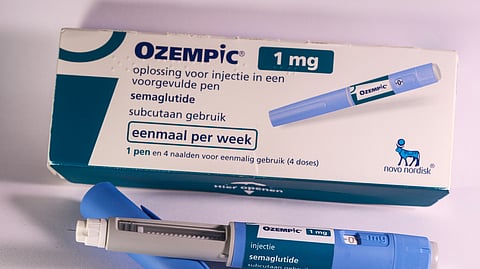1. Can Ozempic/ Wegovy cause Thyroid cancer?
Though there hasn’t been any proper evidence to prove the correlation of Ozempic with thyroid cancer, some studies have shown the risk of thyroid cancer is less than 1%. [1] Other researchers propose that on long-term consumption of these drugs has a possibility of increased thyroid cancer risk when the patient took the drug for 1-3 years. [2]
Dr. Khalid Zalmay explains the benefits against the risk of using these drugs by assessing the patient's profile thoroughly and talking with the concerned doctor about whether the drug would benefit you with a lower risk.
2. Do you need to take these drugs forever?
Dr. Khalid answers in detail about how weight loss is a complex process and results from intake of the drugs based on various factors like starting weight, genetics, diet, exercise habits. “If you are achieving a target weight and your weight is stable, then the aim would be always to take you off these medications. Remember that while being on these medications you should be having a healthy diet with regular exercise.”
3. Would you lose weight without any effort while on this medication?
Dr. Khalid explains that viral social media has made the drugs Ozempic and Wegovy a ‘miracle’ drug used to lose weight without any exercise or proper diet, which isn’t the case. The doctor also explains that these drugs aren’t always the ‘magic solution’. The drugs act by reducing appetite and thereby reduce the urge of overeating but not reduce the fat content in the body immediately. You still have to exercise and follow a proper diet in order to be in proper weight. Since the sense of fullness and cravings decreased with these drugs are taken, patients follow a low-calorie diet, which reduces the weight.


